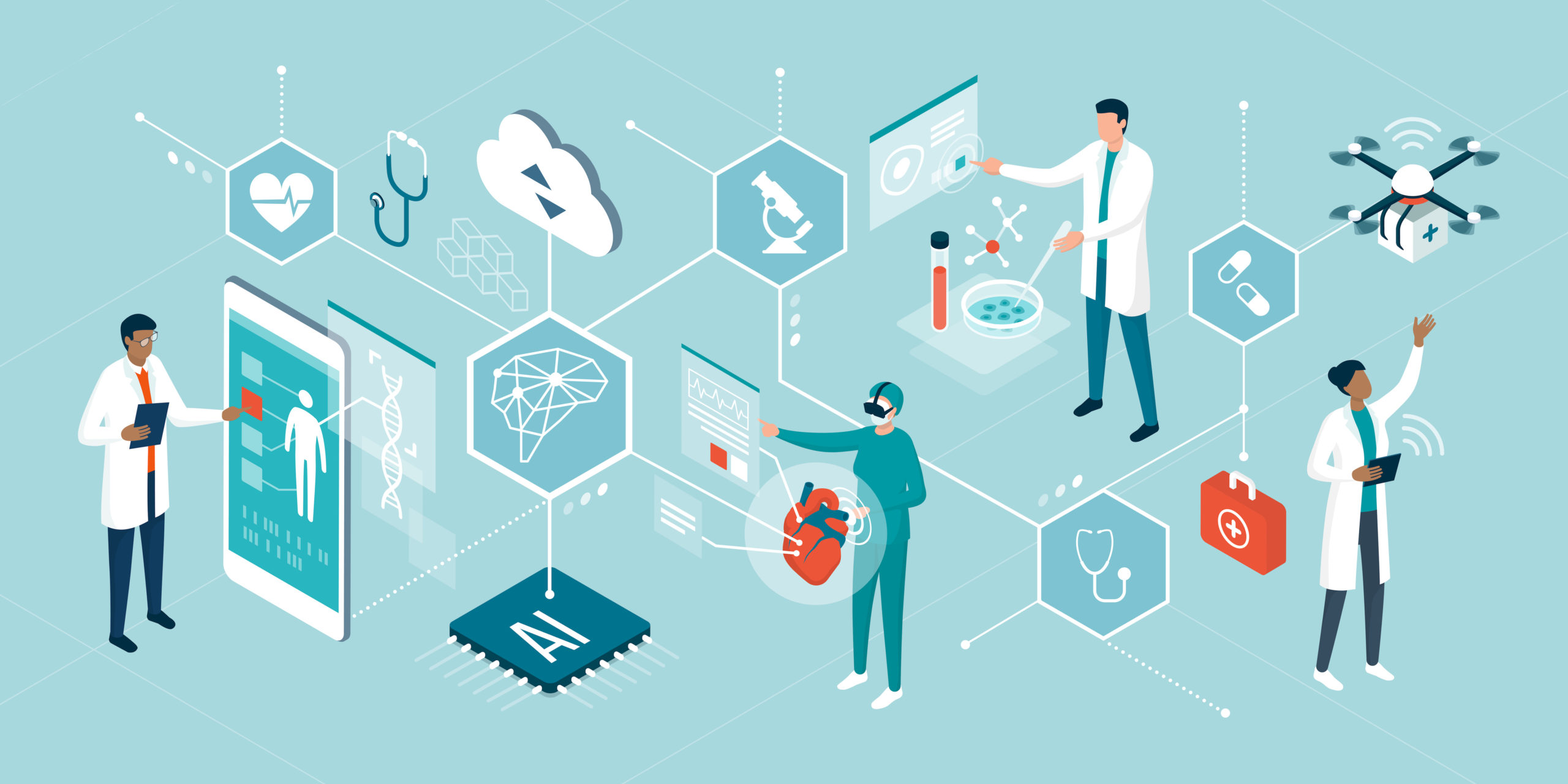Overview
Healthcare has come a long way since the days of handwritten medical records and primitive diagnostic tools. Thanks to technology, healthcare has become more accessible, efficient, and effective. In this blog, we'll take a closer look at how technology has evolved in healthcare and what the current role of technology is in this industry. We'll also discuss what can be done in the future to further improve the use of technology in healthcare.
Healthtech : The Past, Present & the Future
The evolution of technology in healthcare can be traced back to the introduction of electronic health records (EHRs) in the 1990s. EHRs have replaced the traditional paper-based medical records and have made it much easier for healthcare providers to access and share patient information. This has helped improve the accuracy of diagnoses, reduce the risk of medical errors, and improve the overall quality of patient care.
In recent years, the growth of telemedicine has also been a game changer. With telemedicine, patients can receive care from the comfort of their own homes, without having to travel to a healthcare facility. This has especially been helpful during the COVID-19 pandemic, when in-person visits were limited. Telemedicine has also made it easier for patients to receive care in rural or remote areas, where access to healthcare can be limited.Another area where technology has made a significant impact is medical imaging. With the help of advanced imaging tools, such as MRI and CT scans, healthcare providers can now get a much clearer picture of what is going on inside the human body. This has helped improve the accuracy of diagnoses and has enabled healthcare providers to provide more effective treatments.
Artificial intelligence (AI) and machine learning algorithms are also being used in healthcare to help providers make more informed decisions about patient care. For example, AI algorithms can be used to analyze large data sets and identify patterns, which can then be used to develop more effective treatments. AI is also being used to improve the accuracy of diagnoses, especially in areas such as radiology, where there is a shortage of trained professionals.
Technology challenges in Health domain
Despite the many benefits of technology in healthcare, there are still many challenges that need to be addressed. For example, ensuring that technology is used in a way that protects patient privacy and security is critical. In addition, many healthcare providers are still not fully equipped to take advantage of the latest technological advances, and they need more training and support to do so.
Check the importance of Digital transformation in healthcare here.
Six exciting technologies coming in the next 10 years
- Broader AI Adoption: There has been amazing progress made in AI adoption in recent years even in healthcare sector. AI has been applied areas such as the clinical interpretation of complex datasets, intelligent medical images, voice integration, and real-time insight of streaming medical devices and sensors.
- Cloud integration: The industry is still using the cloud for separate functions, such as clinical apps, HIPAA compliant data hosting, and backup, and not in a holistic fashion.
- Infrastructure upgrades that make healthcare.
- Smarter therapies
- Enhanced personalized medical care
- Workflow that mimics consumer technology
Conclusion
In conclusion, technology has played a significant role in shaping the healthcare industry, making it easier for providers to access patient information, deliver care, and improve outcomes. The future of technology in healthcare is bright, and there are many exciting developments on the horizon that have the potential to further improve the quality of care and outcomes for patients. By investing in technology, training providers, and integrating technology into the broader healthcare system, we can continue to improve healthcare outcomes for patients and providers alike.






1 Comment
gateio
May 11, 2023At the beginning, I was still puzzled. Since I read your article, I have been very impressed. Thanks.